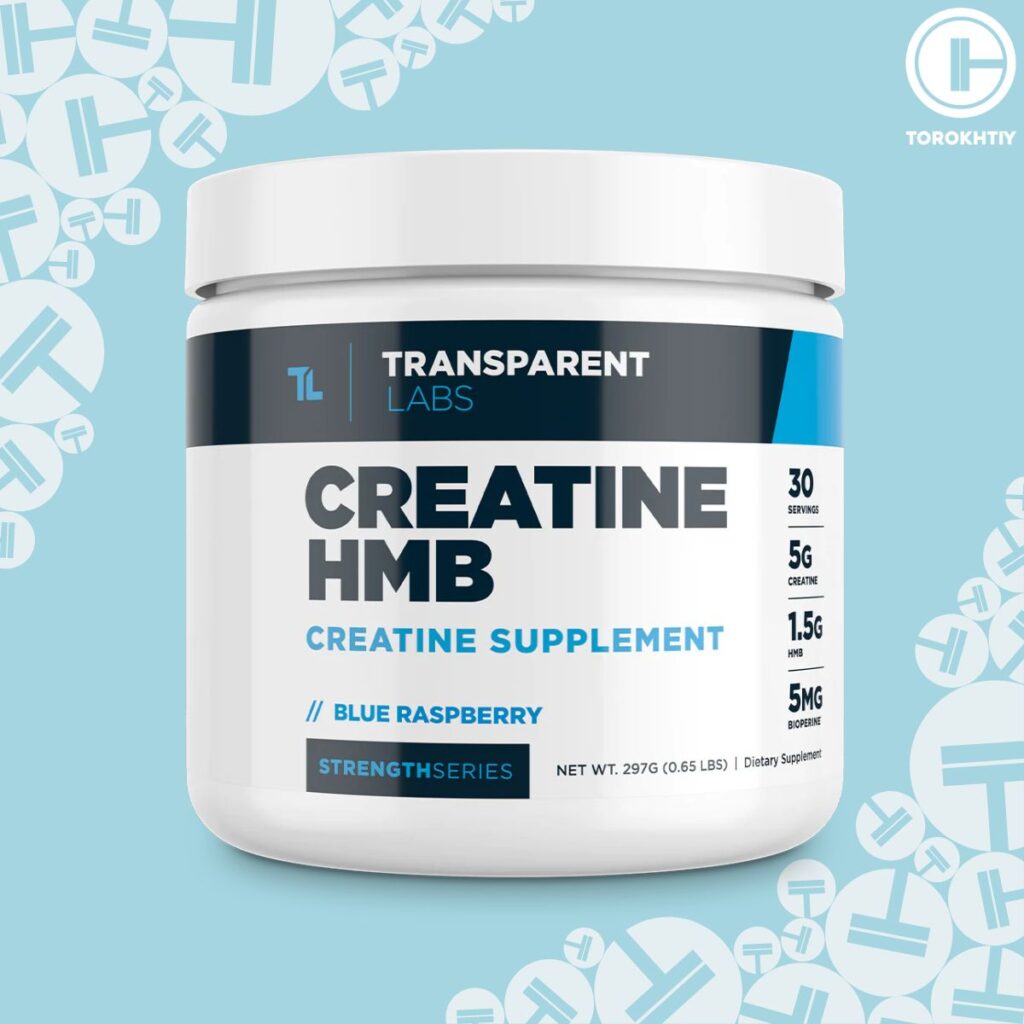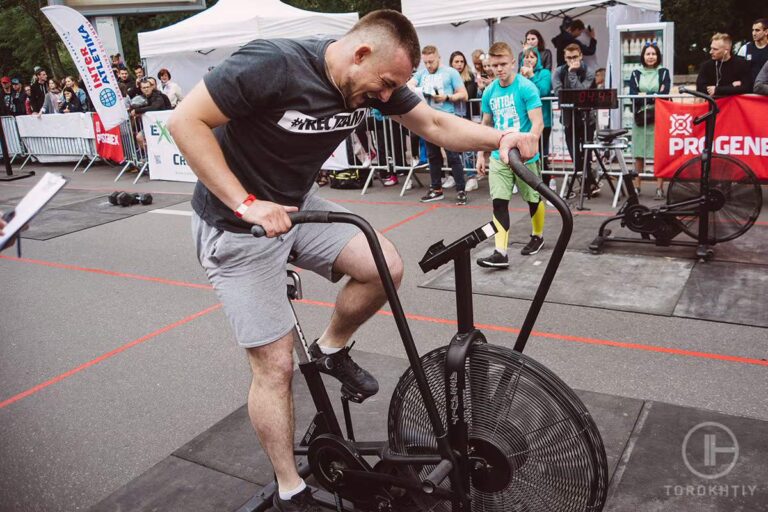Can You Take Creatine Before Bed?
If you’ve just started using creatine, you may be wondering, “Can you take creatine before bed?”
Overall, there’s no need to plan your creatine intake to a certain time throughout the day. This won’t affect absorption or the overall cumulative effects of the supplement. Whatever is most convenient for you will work just fine, whether it’s first thing in the morning, or right before you go to bed.
Can you take creatine before bed? Yes, creatine is safe and effective regardless of when you take it throughout the day. Take your daily dose of creatine whenever it’s most convenient for you, whether that’s in the morning, afternoon, or evening.

What is Creatine and How it Works?
Creatine is widely regarded as one of the most safe and effective sports supplements on the market. It works by saturating your muscles with the nutrient, which then helps to increase ATP production. This then leads to better high-intensity exercise performance, increased recovery, and more lean body mass. 3-5g of creatine per day will be ideal for most people and should saturate your muscles within 2-4 weeks.
Your body does produce creatine through other amino acids, and you do get some through animal products in your diet. However, you likely won’t ever get enough to fully saturate your muscles, making supplementation necessary for maximizing the benefits of creatine.
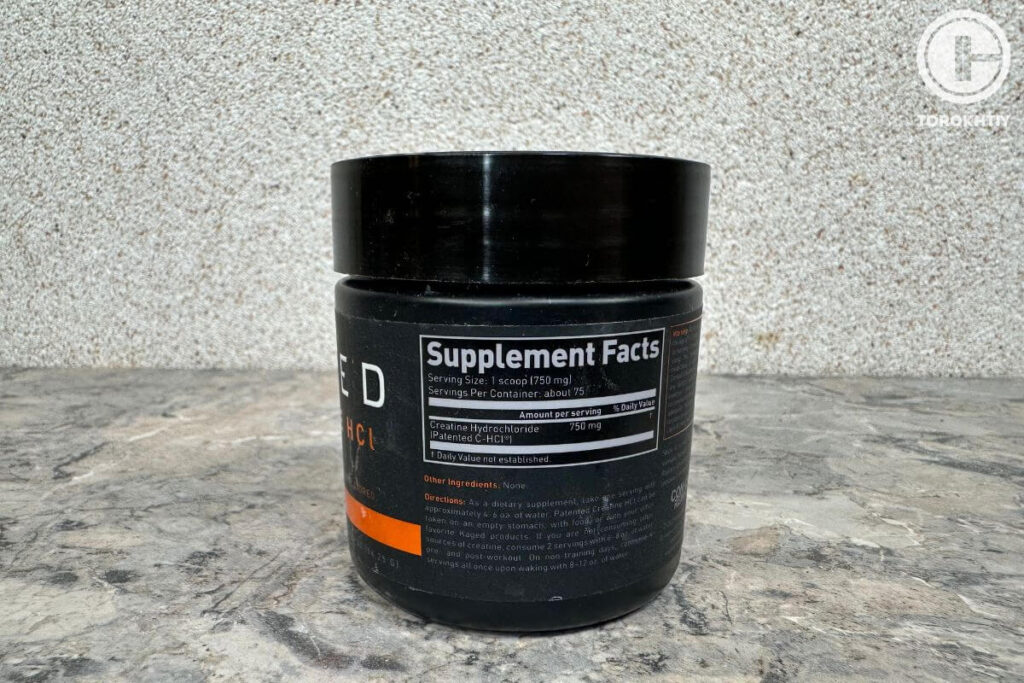
It’s worth noting that creatine will also lead to slightly increased water retention. Once your muscles are fully saturated, you’ll likely retain an extra 0.5-1 liter of water, which will cause you to gain an extra pound or two. Overall, most weight gain caused by creatine is fairly small and is unlikely to make any major difference to your appearance. Just be aware that any extra weight gained when you start taking creatine is probably water and not muscle.
Can You Take Creatine Before Bed?
So, can you take creatine at night? Yes, taking creatine before bed should be completely fine. While creatine does technically give you energy via ATP, it’s not the same acute boost of energy you get from something like caffeine. This means there’s no need to avoid it for a certain amount of time before bed.
With this being said, there may be some minor side effects associated with creatine that may disrupt your sleep. These include an upset stomach, bloating, and headaches. However, these will likely go away with consistent use and adequate water intake. So, this is also no reason to avoid taking this supplement before bed.
Timing – Does it Matter?
In terms of absorption and effectiveness, it does not matter when in the day you take creatine. While this meta-analysis was specifically based on timing creatine around exercise, they found no evidence to suggest that timing creatine intake influences its effectiveness. It’s worth noting that taking creatine alongside carbohydrates will likely improve its absorption, although this won’t make a major difference.
With this being said, we recommend taking it at the same time every day to establish a routine. While this isn’t necessary, this will help you remember to take it every day, which in turn will maximize its effectiveness. Beyond potentially improving consistency, timing will have no real effect.
So, When is the Best Time to Take Creatine?
While it’s perfectly fine to take creatine before bed, is there an optimal time to take this supplement? We’ll be looking at different preferences for taking creatine, as well as a few side effects you should be aware of.
1. Individual Preferences and Convenience
As mentioned above, we recommend taking creatine around the same time every day to establish the habit of taking it. Creatine dissolves well into hot beverages, so you can try taking it with your morning coffee. Or, consider having it alongside a glass of water with dinner.
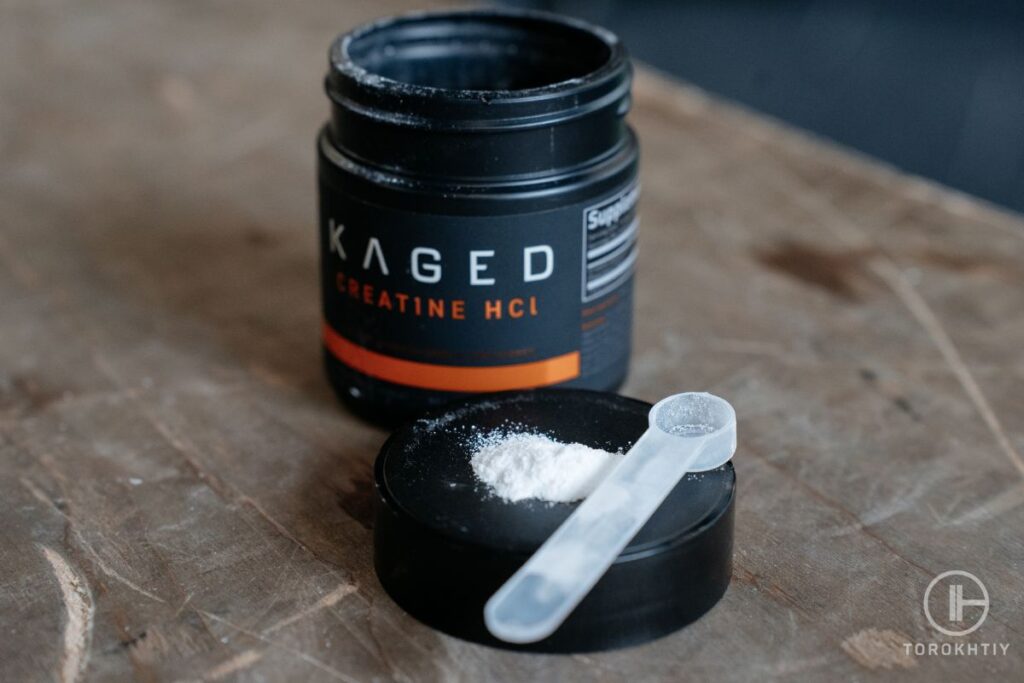
Ultimately, it comes down to when it’s most convenient for you, so try experimenting with different times of the day!
2. Creatine Before Bed – Potential Side Effects
While creatine is completely safe, it’s worth noting there are some minor side effects associated with the supplement. These include bloating, headaches, and a dry mouth. If you experience these side effects when taking creatine before bed, they may disrupt your sleep.
Luckily, most of these side effects can be avoided by upping your water intake. If they persist, consider only taking creatine alongside food, or splitting your creatine dose up throughout the day.
What you Need to Know About Creatine Supplementation – Best Protocol
Now that you know you can take creatine whenever throughout the day, let’s quickly go over the best protocol for this supplement – including form, dosage, and consistency – so you can reap all its benefits.
1. Form
First, we always recommend taking creatine monohydrate over any alternative forms like creatine HCl, Kre-Alkalyn, Nitrate, etc. This is because monohydrate is the most well-researched and cost-effective form of creatine available.
Monohydrate has been studied for decades and is well-known to be completely safe and effective. The same can’t be said for most alternatives, which are mostly recent inventions. Also, while alternatives often make claims about being more effective, they are mostly marketing gimmicks used to charge more for the same basic product.
2. Dosage
As mentioned earlier, we recommend a standard dose of 3-5g of creatine monohydrate. This should be sufficient to fully saturate your muscles with several weeks of daily use. Simply keep taking this dose every day to maintain full muscle saturation.
It’s often recommended that people take a “loading dose” of creatine, which is usually 10-20g a day to saturate their muscles quicker. While it will slightly speed up the saturation process, in our opinion it’s not worth it.
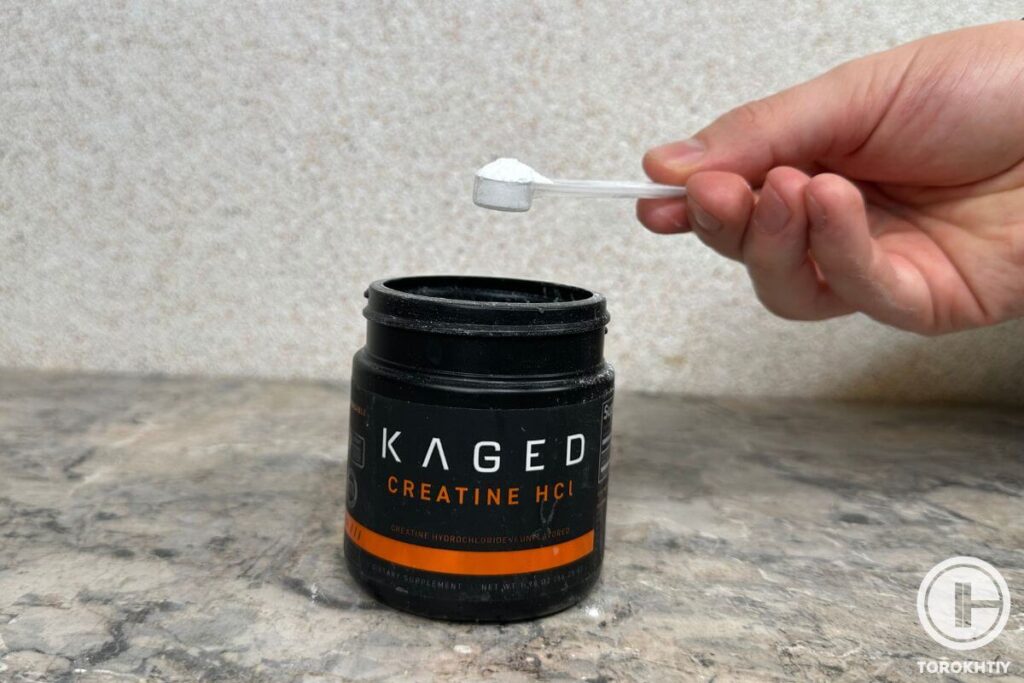
This is mainly because taking higher doses of creatine will make gastrointestinal side effects more likely. Also, while you’ll experience the effects of creatine slightly sooner, you’ll also be using more of the supplement, meaning you’ll run out sooner as well. So, overall, you’re likely better off just staying consistent with a 3-5g dose instead.
If you’re interested in speeding up the saturation process, consider taking creatine alongside food, or mixed with fruit juice. This is because carbohydrates have been shown to speed up creatine absorption.
3. Duration and Consistency
Creatine is safe when taken consistently for years on end. While some people recommend “cycling off” creatine every few months, there’s no evidence to suggest that this is necessary. So, simply take your 3-5g a day and enjoy all the benefits!
Creatine We Recommend – Transparent Labs Creatine HMB
If you’re interested in taking creatine, we recommend choosing a high-quality monohydrate supplement like Transparent Labs Creatine HMB.
Each serving of this supplement contains a standard 5g dose of creatine monohydrate, as well as the deluxe added ingredients HMB and Vitamin D.
Transparent Labs Creatine HMB
- Supplement Type: Creatine
- Best For: Athletic Performance, Building Muscles, Increasing Strength, Muscular Endurance, Recovery
- Suitable for Vegans: Yes
- Added Sugar: 0g
- Price per Serving: ~$1.67
- Servings per Package: 30
- Recommended by Athletes: Hafthor Bjornsson, Paul Sklar, Sean Harris
Overall, HMB is unlikely to provide any major benefit to most experienced lifters, although it may be beneficial for boosting strength in beginners. Meanwhile, Vitamin D is an excellent supplement for muscle growth, bone health, and more. Supplementation with Vitamin D will be especially beneficial if you’re deficient or struggle to get enough sunlight for whatever reason.
This supplement comes in 14 different flavors which is very uncommon for creatine which typically only comes unflavored – although there is still an unflavored option.
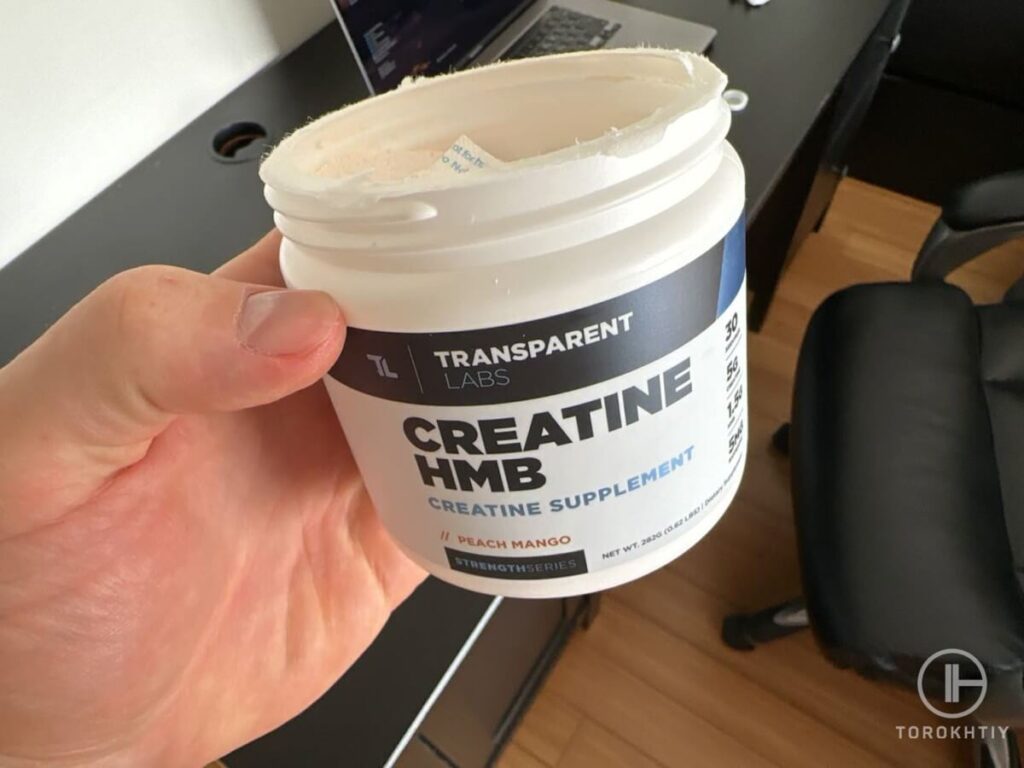
Creatine HMB is also Informed Choice certified, the product has been tested and reviewed along every step of the manufacturing process. This and other third-party certifications are great to look for if you’re ever questioning the overall quality of a product.
It’s worth noting that this is a pricey supplement, mainly because of the inclusion of HMB and Vitamin D, as well as the flavor variety. Each serving will cost you about ~$1.50. While there are cheaper creatine supplements available, we believe this price is still worth it for such a high-quality supplement.
FAQ
Is it Better to Take Creatine in the Morning or Night?
The effectiveness of creatine is not at all dependent on when you take it during the day. There are no specific benefits of taking creatine before bed, or at any other time of the day. As long as you’re taking a 3-5g dose every day consistently, you can take creatine whenever you like and still enjoy the same benefits.
With that being said it may be best to take creatine at the same time every day to establish a routine. However, this can be done whenever it is most convenient for you.
Does Creatine Affect Your Sleep?
No, drinking creatine before bed should not affect your sleep. The only way it may disrupt your sleep is if you experience any side effects such as bloating or headaches. However, these can be mitigated by drinking more water, taking creatine alongside food, and taking lower doses of creatine split up throughout the day.
Conclusion
You can take creatine before sleep, in the morning, or whenever it’s most convenient for you. There’s no evidence to suggest creatine timing will impact its effectiveness whatsoever. Also, if you’re concerned about creatine affecting the quality of your sleep – don’t be!
If you’re interested in taking creatine we recommend choosing a high-quality monohydrate supplement like that on offer from Transparent Labs.
Have you ever taken creatine before, or are you looking to try it for the first time? Let us know your thoughts in the comments below!
References:
- Richard B Kreider, et. al, “ International Society of Sports Nutrition position stand: safety and efficacy of creatine supplementation in exercise, sport, and medicine” Journal of the International Society of Sports Nutrition volume 14, no. 18 (2017).
- Felipe Ribeiro, et. al “Timing of Creatine Supplementation around Exercise: A Real Concern?” Nutrients. Aug, 13(8, 2021): 2844.
- Richard B. Kreider, et. al, “Bioavailability, Efficacy, Safety, and Regulatory Status of Creatine and Related Compounds: A Critical Review” Nutrients, 14(5, 2022): 1035.
- Chad M. Kerksick, et. al, “ISSN exercise & sports nutrition review update: research & recommendations” Journal of the International Society of Sports Nutrition Volume 15, Issue 1 Article 38 (2018).
- The Nutrition Source, “Vitamin D”, Harvard T.H. Chan School of Public Health, https://www.hsph.harvard.edu/nutritionsource/vitamin-d/ (accessed Mar. 11, 2024).
- Photos made by Torokhtiy Media Team.
Why Trust Us?
With over 20 years in Olympic Weightlifting, our team does its best to provide the audience with ultimate support and meet the needs and requirements of advanced athletes and professional lifters, as well as people who strive to open new opportunities and develop their physical capabilities with us.
By trusting the recommendations of our certified experts in coaching, nutrition, dietology, and sports training programming, as well as scientific consultants, and physiotherapists, we provide you with thorough, well-considered, and scientifically proven content. All the information given in the articles concerning workout programming, separate exercises, and athletic performance, in general, is based on verified data. We ensure that you can rely on our professionals’ pieces of advice and recommendations that can be treated as personalized ones which will benefit you and fully meet your needs.
The product testing process is described in more detail here
Camila has worked as a Nutritionist for 7 years. In addition to being a nutritionist, she is an amateur weightlifting athlete for 2 years. Camila has experience at Flamengo’s football base and in a food supplement company and currently provides services at a clinic. At the moment she is coursing a postgraduate study in Sports Nutrition.

